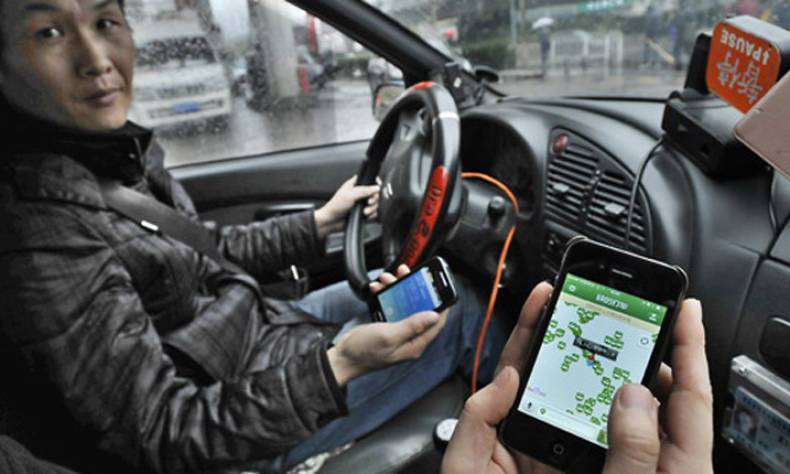
China’s New Car Hailing Regulation a Worry for Uber, Didi
The idea behind innovation is to improve something by making its current process more convenient or more efficient or more effective, and yet the Chinese government appears reluctant to let that happen with regards to commuting around town.
Homegrown private car-for-hire company Didi Kuaidi and its foreign competitor Uber must be concerned with the latest regulation released by the Chinese government, the draft making the current process seemingly more bureaucratic at a time when China is trumpeting a new age of innovation.
Some of the main aspects of the draft include a necessity for pricing systems to be “guided” by the government, meaning no price wars that benefit the consumer (although admittedly not taxi drivers), for drivers to be certified by the government, vehicles registered as taxis, and all customer information to be shared with the government.
The regulation is being introduced under the guise of improving safety, that for-hire private drivers are unregulated, and therefore something of a danger. What rubbish.
If a driver has the requisite license needed to drive in a city, then that should be enough. The responsibility should lie with the respective company to vet its drivers and provide background checks into the driving and criminal records of prospective drivers. Registering a vehicle as a taxi is simply an extra step or three of red tape that is unnecessary and something that will slow down the entire process.
But behind the entire regulation is the concept of competition. Taxi drivers are being protected from these leaner, meaner start-ups, but why? It is a pretty well-established economic tenet that increased competition forces existing companies to up their game. Often on the weekend, my wife and I like to take our daughter somewhere in Beijing as a daily excursion, which more often than not involves taking a taxi. Yet every time that we do, without fail, my daughter will pinch her nose and hold her breath for as long as she can as we get in.
Understandable. A good many of the capital’s taxis smell like either the dormitory at an all-boys boarding school in the middle of winter or the musty basement of a long-abandoned house. Add to this the propensity for many drivers to smoke in flagrant inconstancy of the No Smoking signs or spit nasty globules out the window (although not entirely out the window, with blowback an issue), and the quality of the service is all too often found to be wanting.
In comparison, every time that I have taken a private car for hire (which is admittedly a small sample size), the car has been clean and the driver courteous to the immediate environment.
Regarding safety, yes, there could stand to be some improvements with regards to passenger safety, especially concerning female passengers traveling alone, but registered taxi drivers are certainly not immune from committing such illegalities. And that is if the person driving the taxi is actually the person the car is registered to. It is not uncommon when taking a taxi in China to find that the person driving the vehicle looks remarkably dissimilar from the identification photo above the glove compartment. Hopefully, the rise of Didi and Uber will hopefully help to lower the reliance on black cabs, which are also colloquially known as “rape taxis” by some expats, such is their reputation.
If the ride hailing revolution has not already arrived, then it is certainly on its way, and there is little that the government can do to protect the taxi drivers from the increase in service quality that they will need to undergo in order to compete. Hailing a taxi in the capital can be a nightmare at times, and adding more cars that offer a better service can only help ease the burden. Why slow down the process with further red tape and excessive government oversight instead of embracing the future? Viva la revolución!
 Facebook
Facebook
 Twitter
Twitter
 Linkedin
Linkedin
 Google +
Google +










